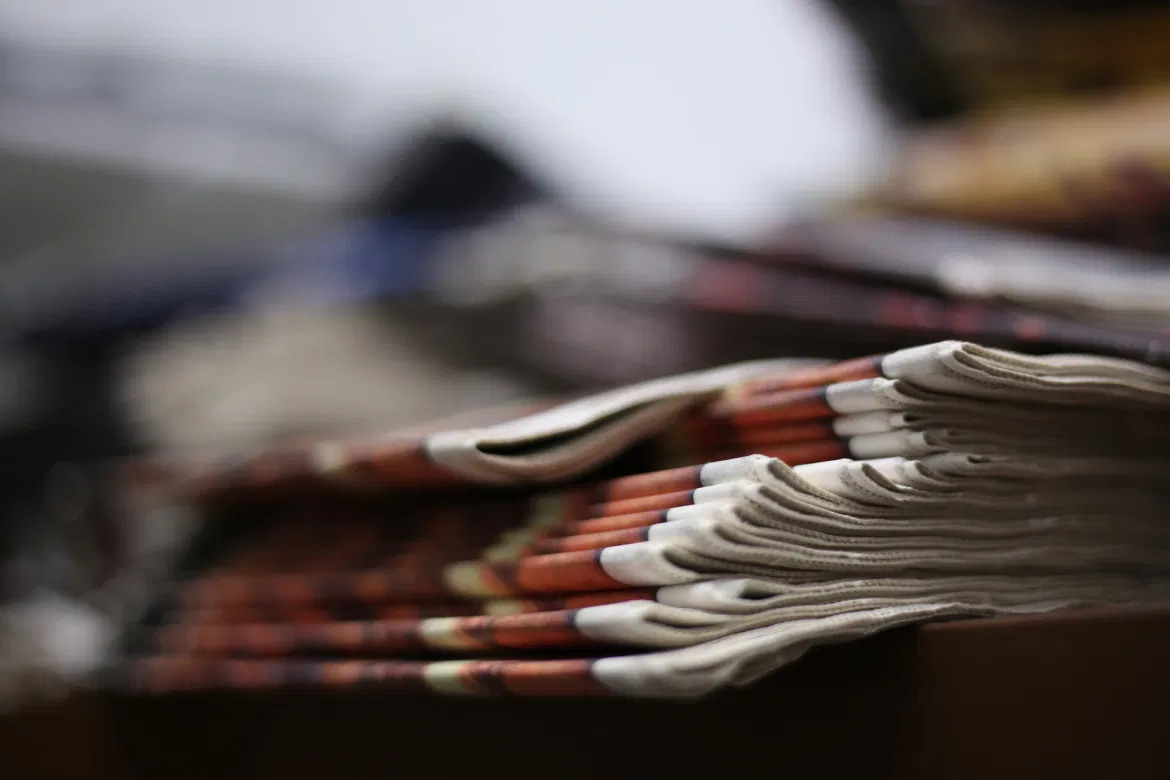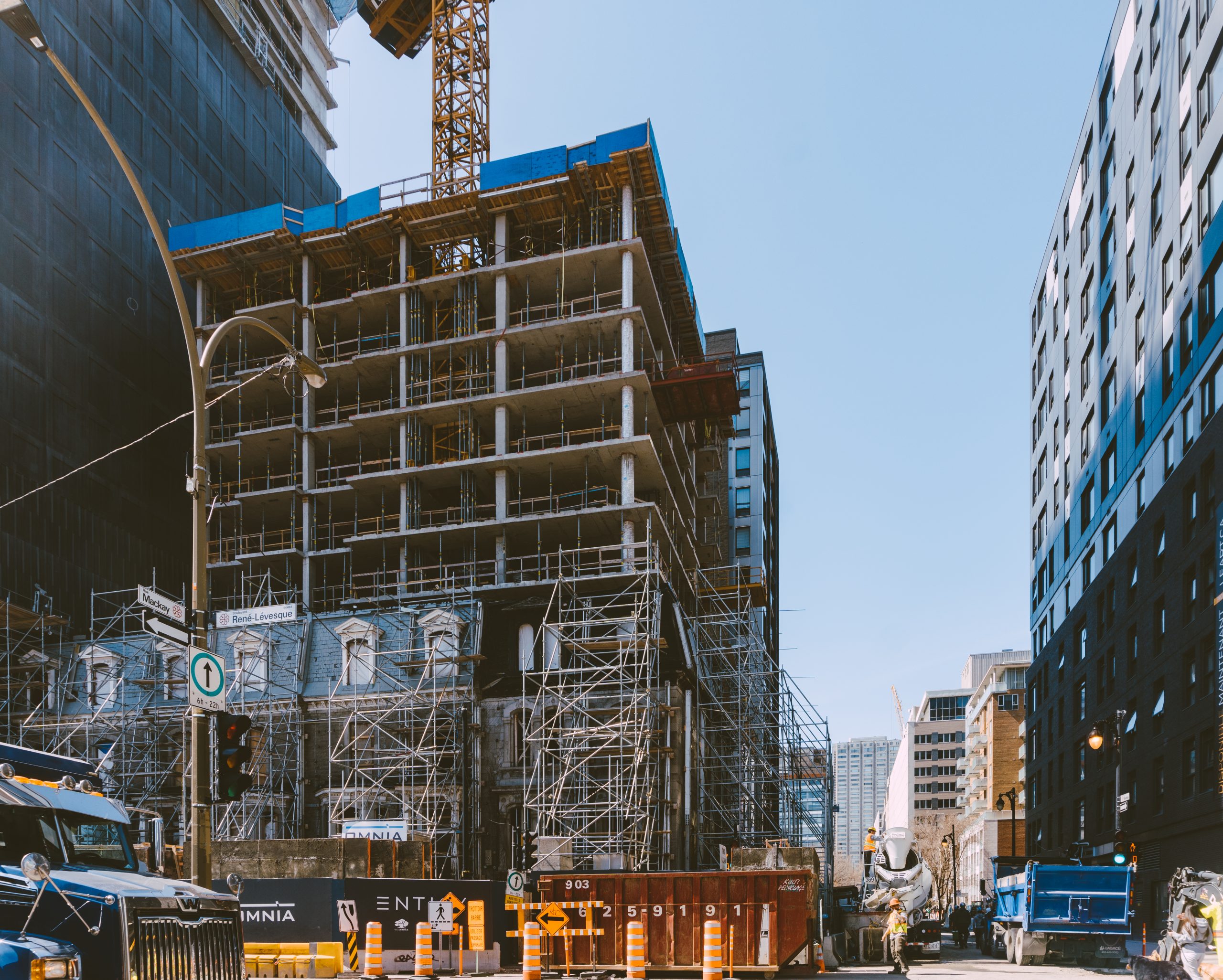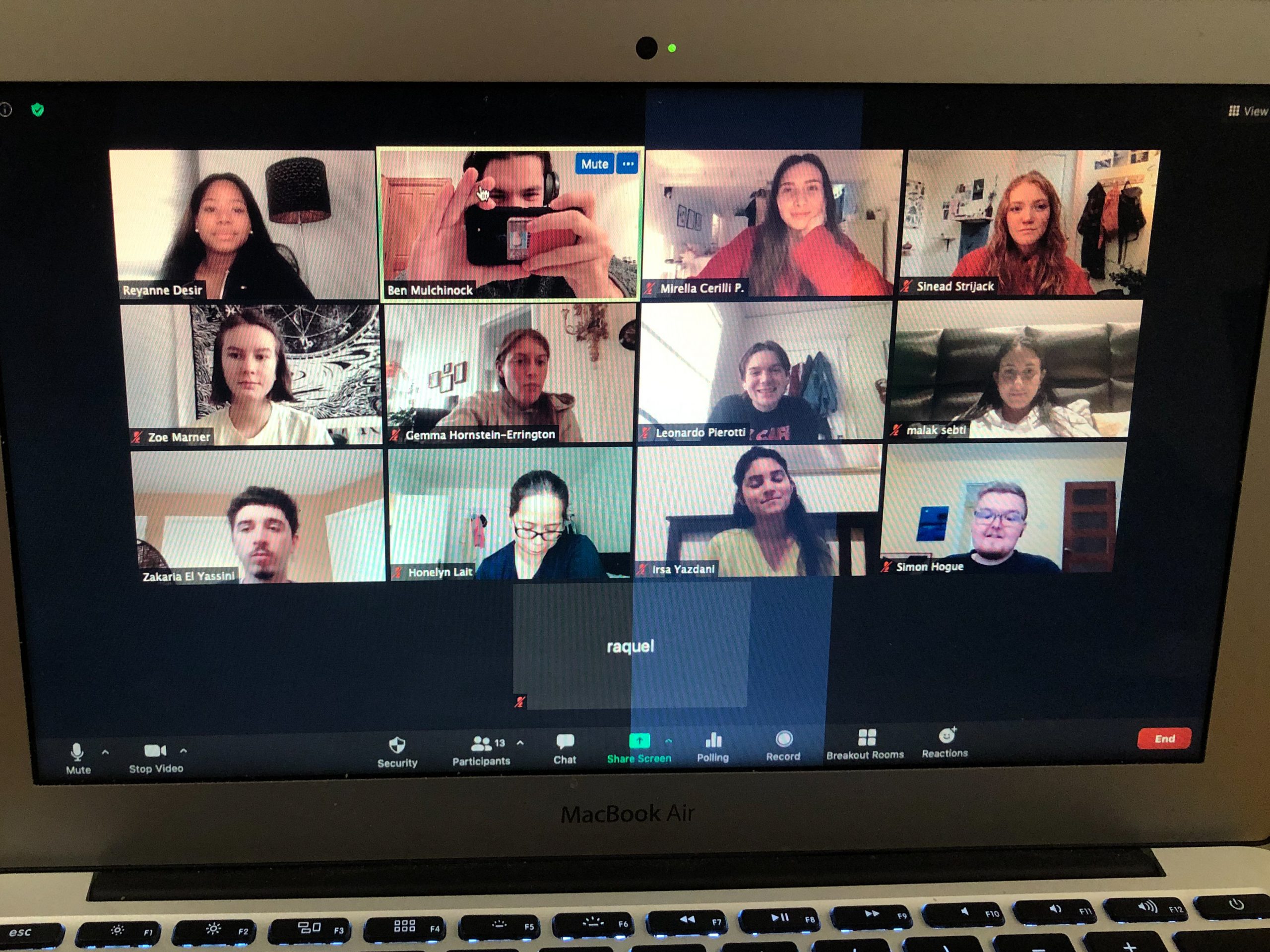They aren’t metal, they aren’t posthardcore, they aren’t electronica, but they’re definitely unique. The Pheonix, Arizona four-piece Opiate For The Masses has been generating a lot of buzz since the release of their first record, The Spore, last April. The band is currently on a North American tour and will be stoping in Montreal next week. I had the chance to speak with the band’s vocalist Ron Underwood to find out more about this talented group of musicians.
The Concordian: Are you guys happy with how people have reacted to your first record?
Underwood: Yah, the people who really like it, I think they get where we’re coming from musically and the diversity. Everyone has a different favorite song, which is pretty cool. It’s not like we just had one strong song and a bunch of filler.
The Concordian: Is The Spore doing what you wanted it to do?
Underwood: You always shoot for the sky and it seemed like, in some ways, the album took off a little more slow than we thought it was going to as far as sales and advertising. But now, all of a sudden we look back and it hasn’t even been a year since the release and we’re like wow, we’ve really come a long way!
The Concordian: One of the reasons why people think you are successful is because Opiate For The Masses has a very particular sound. How did that come about? How can you make music that’s original today?
Underwood: I guess you just have to have a diverse set of influences because if you only listen to a certain genre of music, you’re going to sound derivative of that genre. You’re just going to be lumped together with those bands that you listen to because that’s what you’re emanating, basically. We have such a wide range that we can do an acoustic song with a Chemical Brothers beat behind it that sounds like an Alice In Chains remix, but it’s definitely us. Then we can do something that sounds like a Tool song or Faith No More because we all listen to hard metal. But we have fun singing Whitney Houston songs on karaoke.
The Concordian: So how does Opiate get that artistic streak flowing? What inspires your music?
Underwood: It really depends on what we’re going through in our lives. Maybe a book we read has some spark of an idea that comes into a song. Definitely personal experiences. It’s always easier to be creative writing a song about a hard time in your life than about a good time in your life. There are way more ways of saying “you’ve done me wrong” than “thank you”. That’s funny.
The Concordian: On Warped Tour, you toured with a lot of bands that are different than Opiate. How do you position yourself amongst those other bands?
Underwood: You know what? We never really felt that we fit into a certain kind of scene because we’ve toured with all sorts of bands like Ministry or Drowning Pool, and we’ve even played a show with Maroon 5. We always felt like the stepchild. So it’s not really any different now, but the the scene’s definitely changed. What is popular now has changed, but we’re still kind of on the outskirts. We have elements of what all of those bands have, but we also have things that stick outside of there. People who are a little too tied up in the scene like kids who aren’t a little more ready for something new aren’t going to like us as much as the people who are ready to mess around.
The Concordian: Most of the guys in the band had previous projects before Opiate. You were in a funk band before, and Jim your guitarist was in a rap-metal act. How has that influenced Opiate’s sound? Why did you guys want to do music that’s more metal sounding now?
Underwood: A lot of what we were doing at that time was a social phenomenon before the whole Limp Bizkit thing was happening, so it was something new. It was an idea to mess around with but when that became what was the mainstream, we wanted to go beyond that. We didn’t want to be lumped with those bands because they had already perfected it, like Korn and those guys. They had their own thing already and we were doomed to being compared to those bands in a dead scene. Because of the people we were collaborating with at that time, in 1997 or 1998, that was the type of music that we were writing with those people. But Jim and I had come from a different place. He was really into dance and techno and I was really into ’80s synth-pop, so we took these metal elements and threw them together with that beat-driven, industrial sound.
The Concordian: Speaking of your industrial sound, that definitely does set Opiate For The Masses apart from a lot of bands out there. Is there anything else you wanted to explore on The Spore?
Underwood: There is one song that we were going to put on the album called Ok Now that we had written that in 2001 or so. Because of recording restraints, time restraints and touring, we weren’t able to finish the recording of the song. It was almost like a country-bluesy number. It was kind of like INXS … It was definitely a different element. You could wear a cowboy hat when you sing this one (laughs). Which is really weird, but it seemed to make a lot of sense with us if we were the ones performing it.
The Concordian: Is that something you’d like to do for future records?
Underwood: Yah. We’ve got over 200 songs total that we’ve written, demoed and hatched out and they are all definitely candidates
CONTINUED pg. 10
to go on any future records. Some of them we wanted to hold off because we wanted to come out with a heavy in-your-face record for the first time because of the medium that we’d be touring around. Being able to go out there and rock a crowd definitely gets their attention, so for this to be our first national or international release, we wanted it to have that edge. Probably for the second album we’ll maintain that too, but a lot of the stuff we always joke about, saying that this is great stuff, I don’t think that people would get it right away. We need to get their attention first. We call it the third album material, joking around, but it seems to make a lot of sense to us.
The Concordian: I know that Jim produced the record and it came out on his own label, American Voodoo Records. It seems like you guys have a very “do-it-yourself” mentality. Why was it important for you to be so involved with this record?
Underwood: It’s really important because I think that the strongest things we’ve done and the best decisions we’ve made were the ones where we went away from what our advisors said. We just did what we felt in our gut, we did it our way. It’s been a longer road in a lot of ways because of the things we’ve done. We didn’t cash in on the mainstream right away but I think it’s built a really strong foundation. If we were to break out on the radio right away, those fans a lot of the time are really fickle and they are looking for the next thing. So as soon as you stop getting airplay, your band no longer gets people in the clubs. I think we’ve got that real foundation of fan base because we’ve done it all ourselves.
The Concordian: At the same time, Opiate For The Masses has surrounded itself with some pretty well known people in the music business like Kevin Lyman and Bob Chiappardi. How important is it to also have a good group of people helping you guys out?
Underwood: It’s incredibly important because that’s who’s distributing the record. That’s the group of people who is getting us on good tours and advertising the band itself, things that we can’t do on a scale like that, an international scale except through the Internet. It’s huge. We look at it as an opportunity that these people think we’re worth their time.
The Concordian: During Warped Tour, Tim Armstrong came up to you and asked you to come and record with him and kept complimenting you. How does it feel to get positive feedback from bands or people in the industry?
Underwood: It’s really cool. It feels like the hard work is paying off. You don’t know all the time as an artist how you’re being taken in and what the average person or what the people who are one and the same as you, like Tim Armstrong or another artist, thinks of you . I think that means a lot to an artist when another artist they respect says, “Hey man, I like what you are doing, I get it. Let’s collaborate.” That’s one of the pluses about being an artist is having someone of like-mind saying, “Hey man, thanks for being out there and doing what you do too.”
The Concordian: What would you say are Opiate For The Masses’ goals?
Underwood: They are ever changing. We are rolling with the punches but would definitely like to be a worldwide success and a household name. We would like to be respected as artists and writers. The things we take pride in ourselves, we want people to realize that we have something to give the world, to change the face of the music. To be one of those bands who has a legacy beyond our lifetime. That would mean a lot to me, and to my family and friends who know how long I’ve been doing this for.
Opiate For The Masses play at the Metropolis with Avenged Sevenfold on Thursday November 3rd. Tickets are $21, show starts at 7:30 p.m.




Comments are closed.